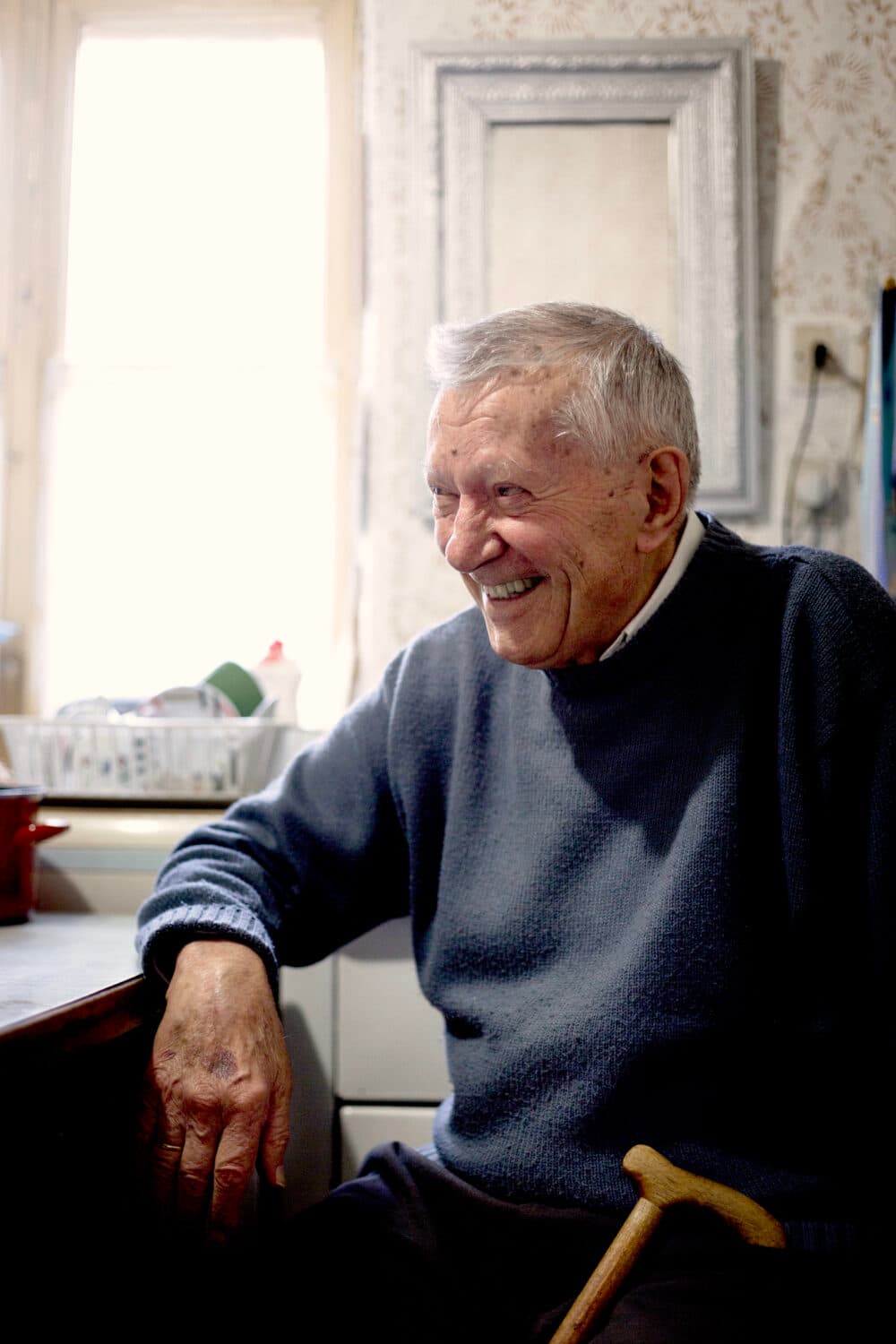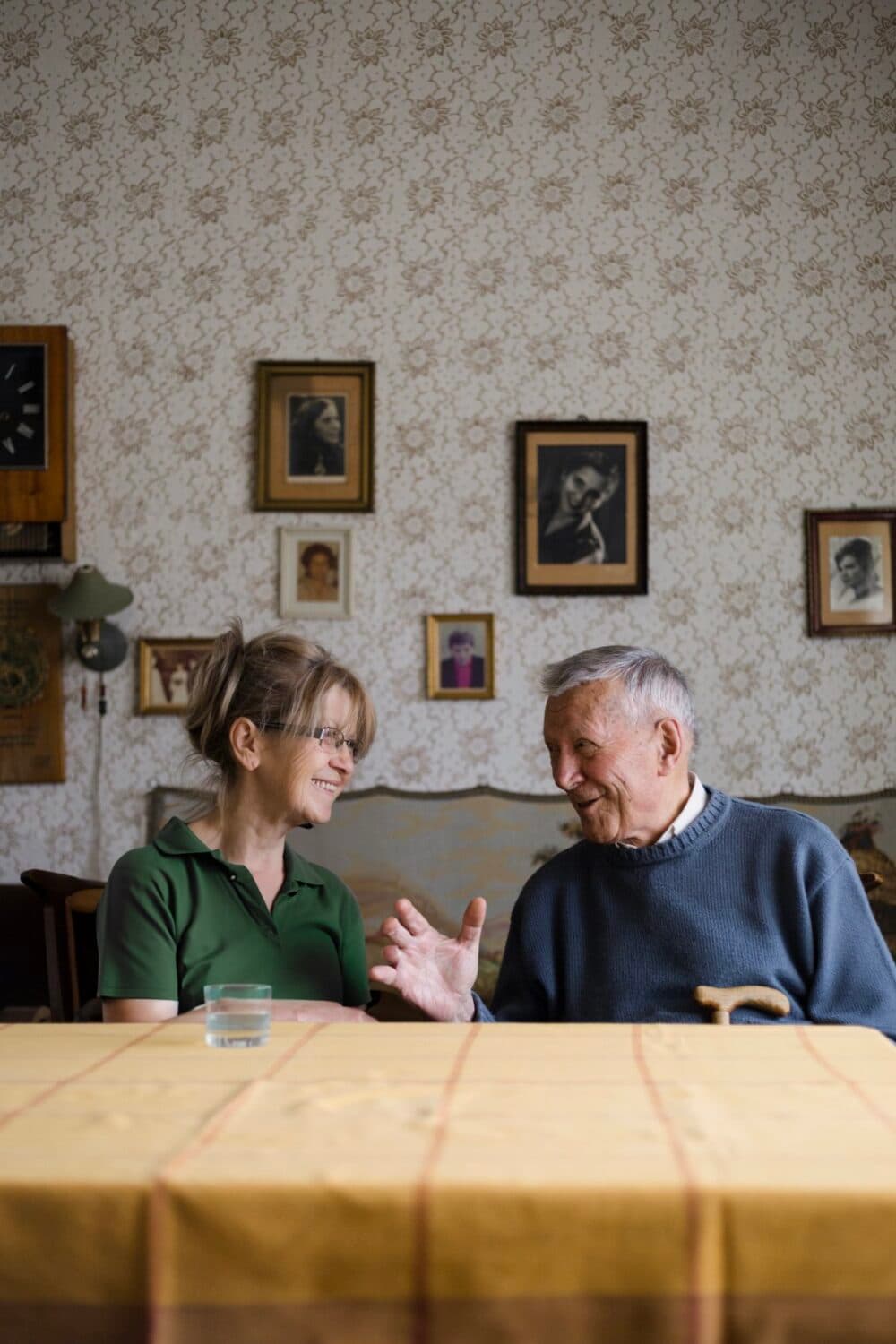How Long Can Someone with Dementia Live? Understanding Life Expectancy and Care Needs

How Does Dementia Affect Life Expectancy?
When a loved one is diagnosed with dementia, one of the most pressing questions families have is: How long do we have together? Dementia is a progressive condition, and life expectancy varies depending on factors such as age, overall health, and the type of dementia diagnosed. While there is no set timeframe, understanding how the condition progresses can help families prepare for the future and provide the best care possible.

Life Expectancy by Type of Dementia
Dementia affects people differently, but research provides general estimates of life expectancy based on the type of dementia diagnosed:
- Alzheimer’s disease: On average, individuals live for eight to ten years after diagnosis. However, if diagnosed in their 80s or 90s, life expectancy may be shorter. Some individuals live for 15 or even 20 years with the condition.
- Vascular dementia: Life expectancy is typically around five years, often due to underlying health conditions such as strokes or heart disease.
- Dementia with Lewy bodies (DLB): This form of dementia has an average life expectancy of six years, with an increased risk of falls and infections.
- Frontotemporal dementia (FTD): People with FTD may live between six to eight years, though those with associated motor neurone disease may have a shorter life expectancy of two to three years.
Life expectancy is influenced by individual health factors, but early diagnosis and quality care can play a significant role in supporting a person’s wellbeing throughout their journey with dementia.

How Dementia Progresses Over Time
Dementia is a progressive condition, meaning symptoms worsen over time. While early stages may involve mild forgetfulness, later stages bring more profound challenges. The progression generally occurs in three stages:
Early Stage Dementia
- Memory loss begins to impact daily life.
- Individuals may struggle to find words or recall recent conversations.
- Confusion and disorientation occur more frequently.
Middle Stage Dementia
- Significant memory loss, including difficulty recognising loved ones.
- Increased reliance on caregivers for personal care and daily tasks.
- Behavioural changes such as agitation, aggression, or withdrawal.
Later Stage Dementia
- Severe cognitive impairment, often leading to loss of speech.
- Mobility declines, with many becoming unable to walk.
- Eating and swallowing difficulties, increasing the risk of malnutrition and pneumonia.
- Full-time care becomes necessary to ensure comfort and dignity.
The later stage of dementia is often the shortest, typically lasting between one to two years. At this point, symptoms from all types of dementia become similar, requiring extensive support from caregivers.

Common Symptoms in Later-Stage Dementia
Understanding the signs of later-stage dementia helps families provide the right care and support. Some of the key challenges include:
Memory Loss and Disorientation
People with advanced dementia often experience ‘time shifting’, believing they are living in an earlier period of their life. This can lead to distress, especially when asking for loved ones who have passed away. They may no longer recognise family members, and reflections in mirrors can become confusing.
Communication Difficulties
Language skills decline significantly, and many individuals become nonverbal. However, they may still respond to gestures, facial expressions, and tone of voice. Non-verbal communication remains important in maintaining emotional connections.
Behavioural and Emotional Changes
- Increased anxiety and depression.
- Delusions and hallucinations, leading to confusion.
- Resistance to personal care, sometimes accompanied by aggression or restlessness.
- Enjoyment of sensory experiences such as music, familiar scents, or comforting textures.
Physical Challenges
- Reduced mobility: Many individuals become unable to walk or move independently.
- Increased risk of falls: Weakness and coordination difficulties lead to a higher likelihood of injuries.
- Swallowing difficulties: This can cause weight loss, dehydration, and an increased risk of aspiration pneumonia.
- Incontinence: Many individuals require assistance with hygiene and continence management.
As physical and cognitive decline progresses, the risk of complications such as infections, pressure sores, and respiratory issues increases.

Providing the Right Care and Support
While dementia is a life-limiting condition, compassionate and tailored care can greatly enhance a person’s quality of life. Here are some key areas of focus:
Ensuring Comfort and Dignity
- Providing a calm and familiar environment to reduce anxiety.
- Encouraging gentle movement to maintain circulation and prevent stiffness.
- Using clear, reassuring communication to help individuals feel safe.
Managing Nutrition and Hydration
- Adapting meals to make swallowing easier.
- Encouraging hydration with easy-to-drink options such as thickened fluids.
- Offering assistance with eating while maintaining as much independence as possible.
Supporting Emotional Wellbeing
- Playing familiar music to soothe and engage.
- Using reminiscence therapy, such as looking through old photographs or storytelling.
- Providing gentle touch, such as hand-holding, to offer reassurance.

End-of-Life Considerations
As dementia progresses to its final stage, palliative care becomes essential. The focus shifts to comfort, dignity, and emotional support. Families may need to make decisions regarding medical interventions, pain relief, and preferred care settings.
Key aspects of end-of-life care include:
- Managing pain and discomfort effectively.
- Ensuring emotional support for both the individual and their loved ones.
- Discussing care preferences in advance to respect wishes.
Support from experienced caregivers can make a profound difference in easing this transition and ensuring a peaceful and dignified experience for the individual.

Support for Families and Caregivers
Caring for a loved one with later-stage dementia can be physically and emotionally exhausting. Seeking support is crucial for maintaining both the caregiver’s wellbeing and the quality of care provided.
Available support options include:
- Respite care: Temporary relief for family caregivers to prevent burnout.
- Support groups: Connecting with others who understand the challenges of dementia care.
- Professional guidance: Advice and resources from dementia support organisations.
For those needing further assistance, the Dementia Support Line at 0333 150 3456 offers expert advice and emotional support.

Final Thoughts
Dementia affects each person differently, but understanding its progression can help families prepare for the road ahead. While life expectancy varies, compassionate care and emotional support can make all the difference in ensuring dignity, comfort, and meaningful connections in the later stages of life.
At Home Instead New Forest, we understand the complexities of dementia care. Our highly trained caregivers provide personalised support, helping families navigate this journey with expertise and compassion. Whether you need respite care, full-time support, or simply guidance on what to expect, we are here to help.

Areas We Serve
Lymington, Brockenhurst, New Milton, Totton, Lyndhurst & the surrounding areas.
BH23 8, BH24 4, BH25 5, BH25 6, BH25 7, SO40 2, SO40 3, SO40 4, SO40 7, SO40 8, SO40 9, SO41 0, SO41 3, SO41 5, SO41 6, SO41 8, SO41 9, SO42 7, SO43 7, SO45 1, SO45 2, SO45 3, SO45 4, SO45 5, SO45 6
5 Rashley Mews, High St, Lymington SO41 9AR, UK
01590 637 250